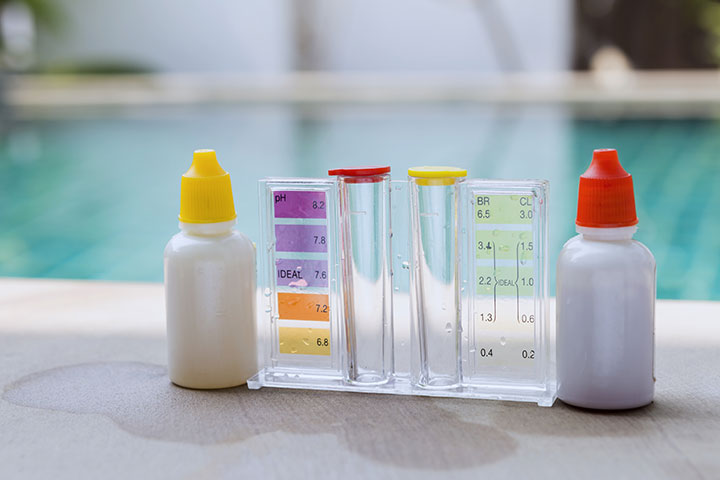
When it comes to the world of pool maintenance, it can be difficult to know where to start. Whether you are a first-time pool owner, or have had your pool for years, chances are you have questions about how to properly maintain your pool. As Spring, Texas’ leading pool experts, Champions Pool Repair & Service understands that pool maintenance can be overwhelming for many people, so we’ve answered your most frequently asked questions to help you keep your pool in excellent condition:
Question 1: Can I Use My Left-Over Pool Chemicals?
While reusing old pool chemicals may seem harmless, it’s actually not recommended. These chemicals are important to keeping your pool safe and sanitary. If these chemicals are past their expiration date, they will not work the way they should and can cause problems for yourself and others in your pool. Keep your pool water safe by purchasing new products to replace those that are past their prime.
Question 2: What are the Recommended Water Chemistry Levels?
pH Level: A pH level that is too low means your pool’s water is “acidic,” while a pH level that is too high means the water is “basic.” The recommended pH level for your pool falls between 7.4 to 7.6.
Alkalinity: The alkalinity levels are important because it acts as a pH “buffer.” Essentially, the alkalinity level keeps the pH level from moving up or down too much by absorbing major changes to the water that can affect the pH. The recommended alkalinity level falls between 100 to 150 ppm.
Chlorine: The proper chlorine level sanitizes the water by killing both bacteria and algae, keeping your pool water safe to swim in. The recommended chlorine level is 3 ppm.
Calcium Hardness: The correct calcium hardness level is essential for plaster pools. If the calcium hardness level is off, the water can begin to eat away at your pool’s plaster. To avoid this, keep your calcium hardness level between 200 to 275 ppm.
Keep in mind that utilizing the help of a reputable pool maintenance company is the easiest way ensure your water chemistry levels are where they should be.
Question 3: How Often Should I Test My Pool’s Water?
You should aim to test the water in your pool at least twice a week to ensure that all levels are safe for swimming. Additionally, be sure to always test your water after parties when a large number of people have been in the pool. Large groups of people can actually affect your pool’s chemical levels, meaning the water could be unsafe following a pool party.
Question 4: How Long Should I Wait to Use My Pool After Shocking It?
Wait 8 to 12 hours after shocking your pool before use, just to be on the safe side. Champions Pool Repair & Service recommends shocking your pool in the evening to let the system run overnight and ensure the pool water will be safe to use the next day. However, if you use a non-chlorine shock, you can typically swim 30 to 45 minutes after the treatment.
Question 5: How Often Do the Skimmer and Pump Baskets Need to be Cleaned?
Dirty or clogged skimmer baskets restrict water flow to the skimmer, which means your pool can’t circulate properly and can lead to costly repairs. The same can also be said for dirty pump baskets. To avoid any major pool repairs, check skimmer and pump baskets daily to see if any cleaning is needed.
Pool maintenance is essential to keeping your pool safe and looking beautiful, but it can be hard to know everything you need to do. For answers to all your pool questions, give Champions Pool Repair & Service a call at (281) 355-8504. Our pool experts are always ready to help.
